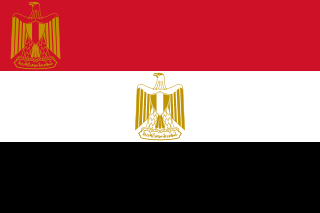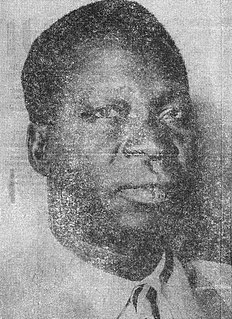The Republic of Benin was formed in 1960 when the colony of French Dahomey gained independence from France. Prior to this, the area that is now the Republic of Benin was divided largely between two coastal kingdoms, Dahomey and Porto-Novo, and a large area of various tribes in the north. The French assembled these various groups together into the colony of French Dahomey, which was part of the various colonies of French West Africa from 1904 until 1960. In the independence era, the republic was extremely unstable for the first decade and a half of existence, with multiple governments and multiple military coups. In 1972, Mathieu Kérékou led a military coup deposing the Presidential Council and appointing himself as the head of state, a position he held until 1991 when the country returned to multiparty elections. Since that point, the state has held multiple presidential and legislative elections and a number of different parties have become important.

The Politics of Benin take place in the framework of a presidential representative democratic republic, wherein the President of Benin is both head of state and head of government, and of a multi-party system. Executive power is exercised by the government. Legislative power is vested in both the government and the legislature. The Judiciary is independent of the executive and the legislature. The current political system is derived from the 1990 Constitution of Benin and the subsequent transition to democracy in 1991. The Economist Intelligence Unit has rated Benin as "hybrid regime" in 2016.

The President of the Arab Republic of Egypt is the head of state of Egypt. Under the various iterations of the Constitution of Egypt, the president is also the Supreme Commander of the Armed Forces and head of the executive branch of the Egyptian government. The current president is Abdel Fattah el-Sisi, in office since 8 June 2014.

The President of the Republic of Hungary is the head of state of Hungary. The office has a largely ceremonial (figurehead) role, but may also veto legislation or send legislation to the Constitutional Court for review. Most other executive powers, such as selecting Government ministers and leading legislative initiatives, are vested in the office of the Prime Minister instead.

The President of the Czech Republic is the elected formal head of state of the Czech Republic and the commander-in-chief of the Military of the Czech Republic. Unlike counterparts in other Central European countries such as Austria and Hungary, who are generally considered figureheads, the Czech president has a considerable role in political affairs. Because many powers can only be exercised with the signatures of both the President and the Prime Minister of the Czech Republic, responsibility over some political issues is effectively shared between the two offices.

Sourou-Migan Marcellin Joseph Apithy was a Beninese political figure most active when his country was known as Dahomey. He arose on a political scene where one's power was dictated by what region in Dahomey one lived in.

Alphonse Amadou Alley was a Beninese army officer and political figure. He was most active when his country was known as Dahomey. He was born in Bassila, central Dahomey, and enrolled in schools in Togo, Cote d'Ivoire, and Senegal before enlisting in the French army in 1950. He saw combat in Indochina from 1950 to 1953, in Morocco from 1955 to 1956, and in Algeria from 1959 to 1961. After the coup in 1965, President Christophe Soglo promoted Alley Chief of Staff of the Army. Young army officer Maurice Kouandété was appointed Alley's chef de cabinet in 1967.

Elections in Benin take place within the framework of a multi-party democracy and a presidential system. Both the President and the National Assembly are directly elected by voters, with elections organised by the Autonomous National Electoral Commission (CENA).

Nicéphore Dieudonné Soglo is a Beninese politician who was Prime Minister of Benin from 1990 to 1991 and President from 1991 to 1996. He was Mayor of Cotonou from 2003 to 2015. Soglo is married to Rosine Vieyra Soglo, the Beninois former First Lady and politician.

The President of the Republic of Belarus is the head of state of Belarus. The office was created in 1994 with the passing of the Constitution of Belarus by the Supreme Soviet. This replaced the office of Chairman of the Supreme Soviet as the head of state. The tasks of the president include executing foreign and domestic policy, defending the rights and general welfare of citizens and residents, and upholding the Constitution. The president is mandated by the Constitution to serve as a leader in the social affairs of the country and to act as its main representative abroad. The duties, responsibilities and other transitional clauses dealing with the presidency are listed in Chapter Three, Articles 79 through 89, of the Constitution.

Tahirou Congacou was a Beninese politician, most active during the 1960s, when his country was known as Dahomey. He served as speaker of the National Assembly from 1964 to 1965, and in that capacity served as acting President of Benin from 29 November 1965 to 22 December 1965. He also served as acting foreign minister during 1965.

Presidential elections were held in Benin on 5 March 2006. Long-time president Mathieu Kérékou was barred from running again by a two-term limit and an age limit of 70 years for candidates; in July 2005 he signalled that he would not seek to change the constitution, as has been done in some other African countries, so that he could run again. Kérékou's long-time rival Nicéphore Soglo was also barred from standing due to his age. With both of the men who had been the country's leading political figures for many years unable to contest the election, it had a level of openness and unpredictability that is uncommon to African presidential elections. Since no candidate won a majority, a second round was held between the two leading candidates on 19 March; Yayi Boni won the election and took office in April.

The unicameral National Assembly is Benin's legislative body.

The People's Republic of Benin was a socialist state located in the Gulf of Guinea on the African continent, which would become present-day Benin. The People's Republic was established on 30 November 1975, after the 1972 coup d'état in the Republic of Dahomey. It effectively lasted until 1 March 1990, with the adoption of a new constitution, and the abolition of Marxism-Leninism in the nation in 1989.
Benoît Sinzogan is a Beninese military officer and politician, best known for leading his country's gendarmerie in the late 1960s. He was a member of the Fon ethnic group, which dominated the Beninese army from 1965 to 1967. After Maurice Kouandété usurped the presidency on December 17, Sinzogan was placed under house arrest until December 19. That day, Sinzogan was appointed Minister of Foreign Affairs, his first political post, which he held until July 1968. He was a member of the Military Directorate, which ruled Dahomey from 1969-1970. Academic Samuel Decalo described the man as "too timid to mount a coup" during the 1960s and 1970s, being "one of Dahomey's few senior officers not to attempt to."
Benin, officially the Republic of Benin, is a country in Western Africa. It borders Togo to the west, Nigeria to the east and Burkina Faso and Niger to the north; its short coastline to the south leads to the Bight of Benin. Its size is just over 110000 km2 with a population of almost 8500000. Its capital is the Yoruba founded city of Porto Novo, but the seat of government is the Fon city of Cotonou. About half the population live below the international poverty line of US$1.25 per day.


























